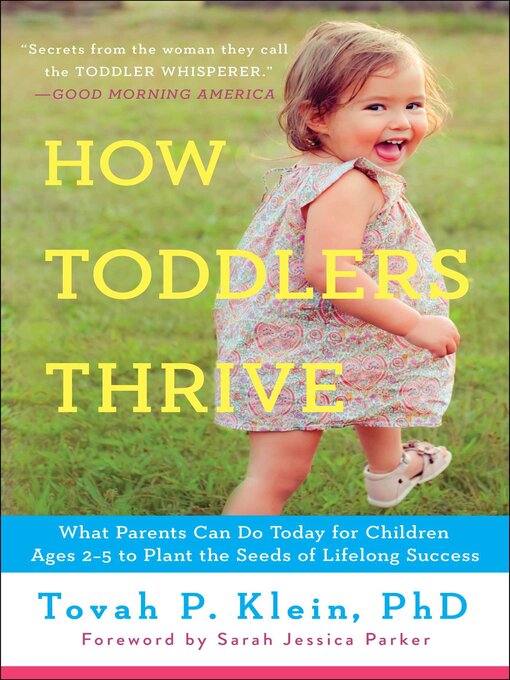
Why do some children thrive, and others struggle? The answers may surprise you. New research indicates that the seeds for adult success are actually planted in the toddler years.
Dr. Tovah Klein's research and firsthand work with thousands of toddlers explains why the toddler brain is best suited to laying the foundation for success. Dr. Klein reveals the new science behind drivers such as resilience, self-reliance, self-regulation, and empathy that are more critical to success than simple intelligence. She explains what you can do today to instill these key qualities in your toddler during this crucial time, so they are on track and ready to learn when they enter school at age five.
How Toddlers Thrive explains why the toddler years are different than any other period during childhood. She shows what is happening in children's brains and bodies at this age that makes their behavior so turbulent, and why your reaction to their behavior—the way you speak to, speak about, and act toward your toddler—holds the key to a successful tomorrow and a happier today. This provocative book will inspire you to be a better parent, and give you the tools to help you nurture your child's full potential. A smart and useful guide, this book cracks the preschooler code, revealing what you can do to help your toddler grow into a fulfilled child and adult—while helping you and your toddler live more happily together now, and every day.
-
Creators
-
Publisher
-
Release date
February 18, 2014 -
Formats
-
Kindle Book
-
OverDrive Read
- ISBN: 9781476735153
-
EPUB ebook
- ISBN: 9781476735153
- File size: 2392 KB
-
-
Accessibility
-
Languages
- English
-
Reviews

Loading
Formats
- Kindle Book
- OverDrive Read
- EPUB ebook
subjects
Languages
- English
Why is availability limited?
×Availability can change throughout the month based on the library's budget. You can still place a hold on the title, and your hold will be automatically filled as soon as the title is available again.
The Kindle Book format for this title is not supported on:
×Read-along ebook
×The OverDrive Read format of this ebook has professional narration that plays while you read in your browser. Learn more here.